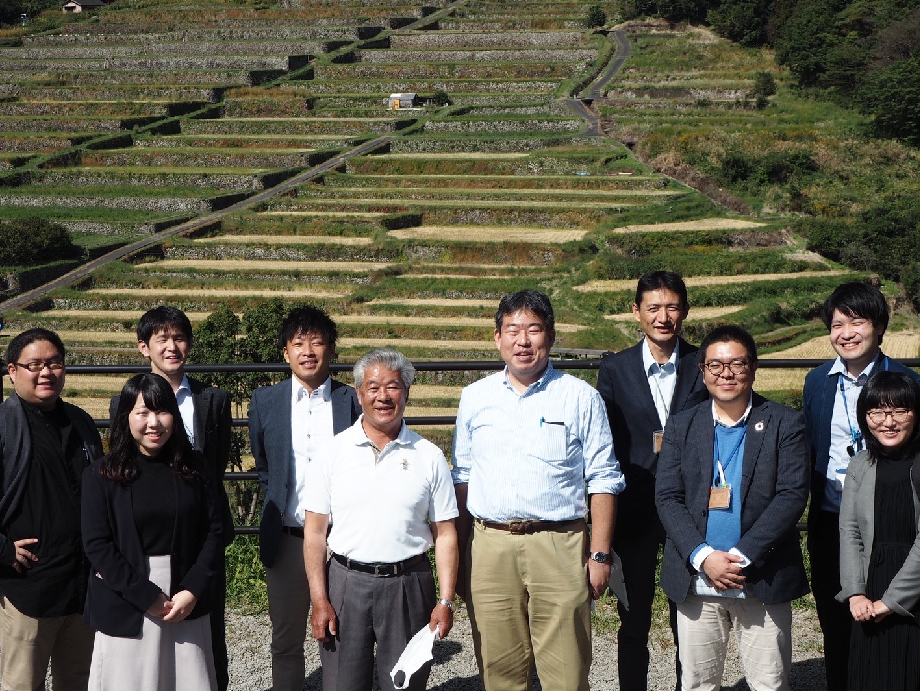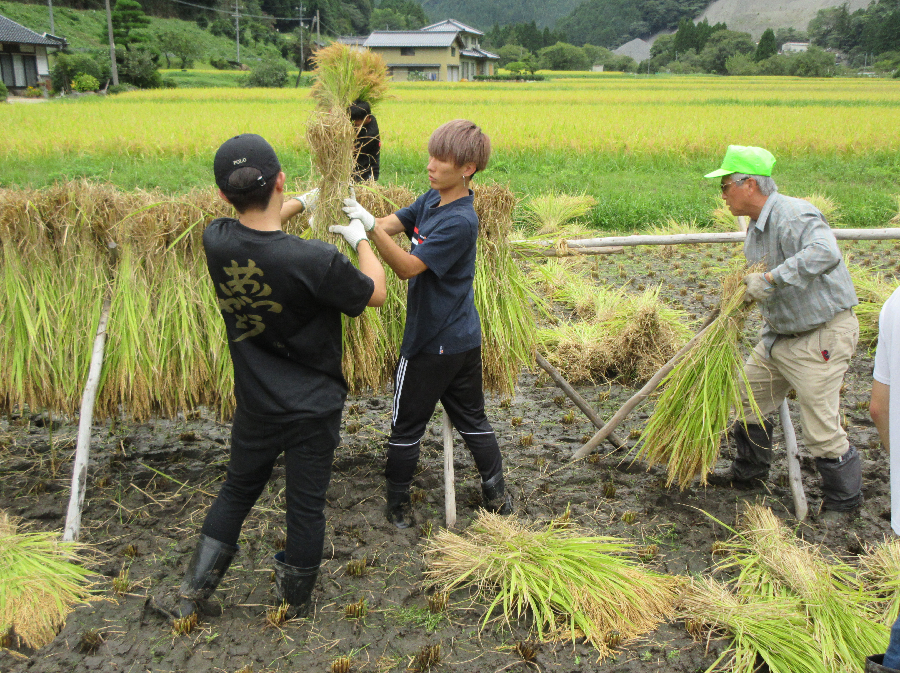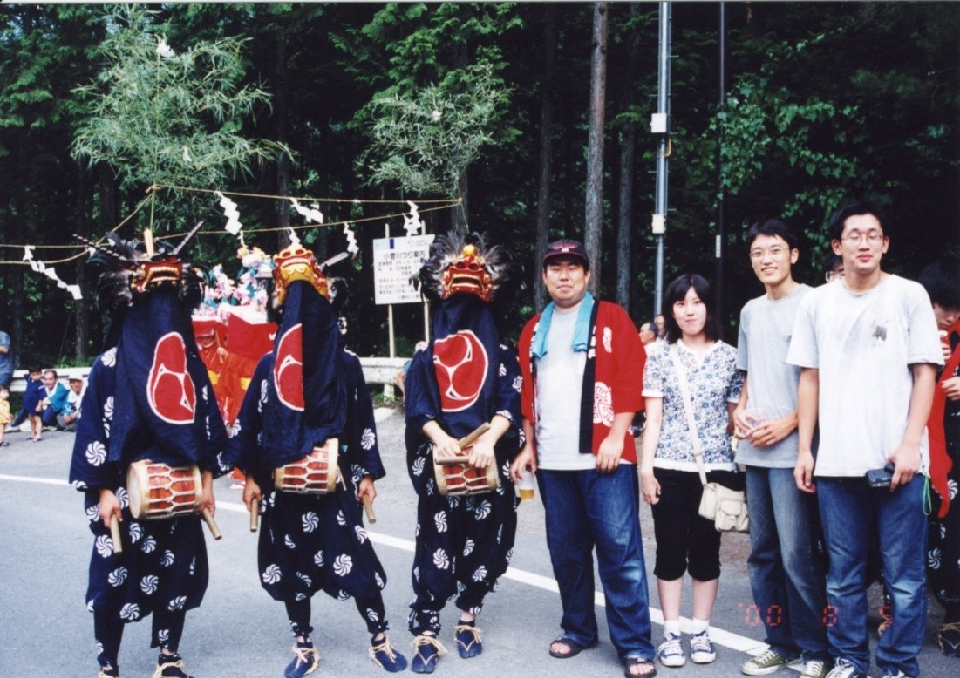reseach
Community-Based Policymaking for the Future of Agricultural and Mountainous Areas with Severe Economic and Living Conditions
Naoya Zushi, Professor
Department of Community Development, Faculty of Social Policy and Administration
Posted May.13,2022
Faculty Profile
Professor Naoya Zushi is addressing regional policymaking that will connect villages in hilly and mountainous areas to future generations. Professor Zushi is dedicated to increasing the region's value while emphasizing interaction with local people.
Taking the Initiative on Japan’s Future Problems
I am a researcher in agricultural economics. I mostly research the structure and economy of local communities that make their living from agriculture. From this, I highlight problems and propose policies while looking for points that can be improved.
In my research, I pay particular attention to mountainous areas and the surrounding regions. Mountain villages are not ideal locations for agriculture. However, they have many tangible and intangible local resources, such as an abundant natural environment, ample freshwater resources, and years of expertise and wisdom. Also, from the perspective of land conservation, we must not allow the villages to become abandoned.
That is why I travel to the villages as much as possible to listen to residents’ opinions. I am working to understand the characteristics of the region while sometimes working together with the residents. After doing so, I am trying to find ways to help enhance the region's value even by a little.
Since agriculture is easily affected on a global scale, it is necessary to think about policies that fit the region. However, people struggling in rural areas do not have time to look at their situation and problems objectively. That is why I believe my involvement as third party who knows the situation on the ground allows me to uncover the strengths of the region and provide advice on developing guidelines that will lead to concrete action.
In addition, the challenges associated with depopulation and an aging society will eventually impact urban areas. The effects of population decline are already creeping into urban suburbs, such as the Tama area of Tokyo, where the Tama Campus is located.
Japan is facing a super-aging society, and I believe that I am taking the initiative working on practical case studies to solve inevitable future problems. I am striving to accumulate knowledge and expertise.

I have also assisted with human resource development at the Japan Local Leader Development School held by the Japan Center for Regional Development. I observed conservation activities for the Sakamoto Rice Terraces in Nichinan City, Miyazaki Prefecture, for the 2021 Fall Fieldwork.
I Decided to Become a University Professor to Research, Educate, and Contribute to Local Areas
I came across a flyer in a classroom when I was a student about participating in fieldwork in Oguni Town, Kumamoto Prefecture. The flyer that I came across by chance ended up being a turning point in my life.
Through my fieldwork, I got closer to the local people, and I took on the problems of Oguni Town and the residents' feelings as my own. During discussions with local people, even as an “outsider,” I was able to feel that I was contributing through being engaged in problem-solving while being closely involved with the community.
Eventually, I started to think about contributing to society through the three fields of research, accumulating expertise in problem-solving, education, developing future leaders, and effective policy creation to increase the sustainability of regions. To bring this contribution to life, I decided to try to become a university professor.
I was fortunate to become a professor at the Faculty of Social Policy and Administration. I am grateful and find it very rewarding to be comprehensively involved in agricultural and rural policymaking challenges from a position where I link academia with society.
For that reason, it has been unfortunate that it has become harder to visit local areas due to the impacts of COVID-19. The impact of policymaking is enhanced by spending even a few days talking with local people and getting closer to them through shared experiences.
Students' learning also is impacted more by the realizations they get from hands-on experiences than the knowledge they can acquire by studying at their desks.
Looking ahead to the post-corona era, I feel there is the need to innovate our approach to fieldwork, such as utilizing online methods to reduce the feeling of distance from local areas.

We worked hard harvesting rice and putting it on a rack to dry in the seminar field work we held in the Chiwa village of Tsuyama City, Okayama Prefecture (taken in fall 2018).
I Want Students to Sharpen Their Insight and Have Good Encounters
No matter what job you take on when you go out into the world, you have to work with people, and you will face many issues. Adopting the below two approaches will help you to be prepared.
The first is to sharpen your insight. Problems that you will face in society are complicated. Some problems are difficult to solve due to the entanglement of many different circumstances. Even in challenging situations, not giving up and facing the issue head-on, finding a role you can fulfill, and thinking about how to solve the issue will allow you to reach a solution. Cultivating your insight will help you understand the situation and ascertain the whole picture, making it easier to find clues to the solution.
The second is encountering brilliant people and listening to what they have to say. It is important to know what process people took to end up in their current situation. Knowing this will be the starting point for considering your own future.
I was able to grow through encountering my teachers and seniors and following their path. I believe that by not following the exact footsteps of my seniors, but arranging it in my own way, and communicating this to students has led me to develop my own practical wisdom.

I constantly took part in regional development internships when I was a student. The local festival that was held when I was visiting Kosuge Village in Yamanashi Prefecture is a good memory of mine.
Naoya Zushi, Professor
Department of Community Development, Faculty of Social Policy and Administration
Born in 1975 in Ehime Prefecture. After graduating from the Faculty of Agriculture at The University of Tokyo with a major in agricultural structure and business administration, Zushi went on to complete a doctoral course at the Department of Agricultural and Resource Economics of The University of Tokyo Graduate School of Agricultural and Life Sciences. He has a Ph. D in Agriculture. After a spell as a researcher at the Nippon Agricultural Research Institute, Zushi became a full-time lecturer at the Hosei University Faculty of Social Policy and Administration in 2007, then became an associate professor in 2009, and has been in his current role since 2016. Zushi has also participated in the expert committee of the Ministry of Agriculture, Forestry and Fisheries as an adviser on regional development and human resource development. Zushi also serves as the chair of the Independent Committee on the Direct Payment System for Mountainous Regions.

